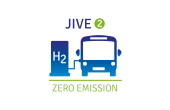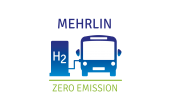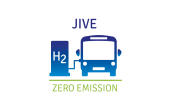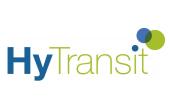The Clean Hydrogen in European Cities project (CHIC) was a flagship zero emission bus project that deployed a fleet of fuel cell electric buses and hydrogen refuelling stations in cities across Europe and at one site in Canada. The project started in 2010 and ended in December 2016. The project successfully demonstrated that fuel cell buses can offer a functional solution for cities to decarbonise their public transport fleets, improve their air quality and lower their noise levels. The buses can operate with the same flexibility as a diesel bus without compromising the productivity of public transport.
The total project budget was €81.8 million, of which €25.88 million was co-funded by the Fuel Cells and Hydrogen Joint Undertaking (FCH JU). 26 fuel cell electric buses receiving FCH JU co-funding operated in the canton of Aargau (CH – 5 buses), in Bolzano (IT – 5 buses), London (UK – 8 buses), Milan (IT – 3 buses) and Oslo (NO – 5 buses). Cologne (DE – 4 buses) and Hamburg (DE – 4 buses) operated 8 further fuel cell buses through separately funded programs. In Whistler (CA), 20 fuel cell buses were deployed between 2010 (Winter Olympics Games) and March 2014. In Berlin (DE), 4 hydrogen internal combustion engine (ICE) buses operated between 2006 and December 2014. Throughout the project lifetime, 54 fuel cell buses were demonstrated in total. The diversity of climate and city sizes allowed the testing of the vehicles under different conditions.
This report is the final report of the project, presenting the key-facts, results and recommandations for future projects.






